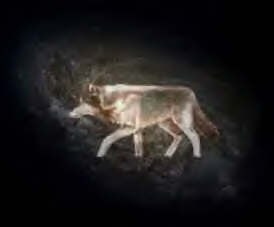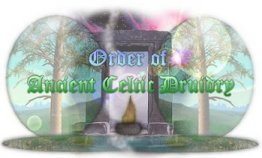|
 Read Chapter 4 - The Challenge Read Chapter 4 - The Challenge
Cut and paste the following questions into an email, add your
answers, and send to MysterySchool
with the subject line "OAT 4, CeltShamanism from ____________
(your magikal name)"
PART A
1. T/F - Much if not all, of the practice of shamanism is done
in a group.
2. One of the first personal steps to becoming a shaman is being
honest with yourself about your _________________, your ____________
______________, and what __________________ you in _____________________
_______________.
PART B
Exercise 1: Do the personal test on pages 39 and 40.
Record your answers in your shamanic journal before going onto
the question/answer exercises.
1. Why is it important to know why you chose to do what you
do?
2. In order to become a shaman, a person must set ___________________
_______________ and strive to meet them.
3. T/F - Goals are ongoing, never static.
4. What three aspects of our lives need to be in balance so
that life runs smoothly?
5. T/F - A shaman sees a great many things others do not.
6. A shaman has to become aware of their __________________
____________________ at all times.
7. T/F - A shaman never says no, even when someone who asks
for help really does not want it.
8. T/F - Shamanism fills a need within everyone.
9. T/F - To be a powerful shaman, you must have control over
what is done with your auric energy.
10. T/F - To be an effective shaman you must accept responsibility
for your choices.
11. According to the author -- how does one let go of the past?
12. A shaman cannot afford to practice ____________, __________________,
and __________________.
13. To the shaman -- impatience maybe a signal of what?
14. To the shaman, all of nature is ________________, and therefore,
part of her/himself. Nothing in nature is _________________; _____________
and ____________ are all part of a whole picture and being.
15. What must a shaman do with nature in order to journey successfully
to the Otherworlds?
16. T/F - A shaman does not deal with a supreme power throughout
their journeys.
17. T/F - A shaman has to be aware of all of their moods and
track down the possible causes.
18. The shaman realizes that she/he progresses through a series
of repeating _____________________ ____________.
19. Realizing where she/he is in a cycle at any given time helps
the shaman to determine what?
20. T/F - A shaman needs to keep a dream journal so she/he can
date and record each dream, later adding notes as to what happened
that might be an interpretation.
21. An ____________, _______________, _____________ to a relationship,
or _____________ of a loved one is often enough to send a natural,
but undeveloped shaman seeking along new spiritual paths.
22. T/F - Shamans are not animal lovers.
23. Shamanic journeys always encounter a variety of animals,
and the shaman must be ________________ and _____________ to communicate
with them.
24. Practicing shamanism requires a _______________ __________
of all things. At the same time, the shaman must learn when to
_______________ _____________ to new ideas and when to _____________
them.
25. T/F - A shaman knows that excessive talking (about personal
life, beliefs, journeys, etc.) diminishes their power.
26. Is it OK to go and tell others about something that was
told to you in confidence? Why or why not?
27. T/F - If you value certain social positions you will become
a dedicated shaman.
28. A shaman values her/his aloneness, knowing that ____________
____________ and _______________ come through during these times
of quiet. Shamanic __________ and ________________ cannot compete
with the _______________, ______________ ___________ mind, nor
will they try.
Exercise 2 : Compare your list you did in Lesson Two with the
answers you gave earlier in this lesson. Were there any suppress
or eye-openers. Looking at your answers for this lesson, are there
more items to add to your lesson 2 list. If so, go ahead and add
them now. Send a report to the MysterySchool.
In your report answer the following question: What have you learned
so far about yourself?
Extra Credit Exercise: Take another journal page (or two) and
divide it in half. At the top of one column write the word "positive."
At the top of the other column write the word "negative." Down
the side of the page(s) write the following, making sure you leave
space to write in:
Self-discipline, Balanced life, Self-control, Responsibility
for own life, Letting go of the Past, Manipulation, Patience,
Connection with Nature, and Self-awareness.
Using the list you have already made, categorize each item listed.
Don't worry if there are some items that can't be categorized.
Just do the best you can.
Example: Dryad Katrein's initial list may look something like
this:
Things I like:
My ability to help people feel better using massage.
My deep blue eyes.
Things that need healed:
My sugar addiction
Here is how Dryad Katrein would categorize each item listed:
I would put "My ability to help people feel better..." under
the category "Self-awareness" on the "positive" side. I would
put "My sugar addiction" under the category "Self-control" on
the "negative" side. "My deep blue eyes" is not something that
can be categorized with the given categories.
* * * * * *
After you have completed your sorting, think about and answer
the following question: Were there any categories that did not
have anything positive or negative in them? Now go back and think
about these areas in your life and see if there was something
you missed. If there was, add it to your list. If not, do not
worry about it for now. Doing this exercise may be helpful for
the next lesson.
Please understand that these lists you have been making are
not static. Things will be added to the lists or taken away from
the lists as negative habits are worked on and new ones are realized.
Back to Celtic Study
Hall | Back to Top
|



